Antonio Lo Iacono remembered a year on from Adelaide Hills footy tragedy
Every day for the past year, Wendy Smith has thought of her late son Antonio. But despite its challenges, she has used her grief to carry on the “larrikin” footballer’s legacy.
SA News
Don't miss out on the headlines from SA News. Followed categories will be added to My News.
The last time Wendy Smith saw her son Antonio Lo Iacono alive, nurses were wheeling the 20-year-old into an operating room at the Royal Adelaide Hospital.
It was dawn on Anzac Day last year and the sound of the Last Post, played at Ms Smith’s request, filled the near-empty hospital corridors as she prepared to farewell her son.
For more than two days prior, Mr Lo Iacono had laid unconscious in a hospital bed after suffering head injuries during a football match in the Adelaide Hills.
Mr Lo Iacono, a talented junior footballer playing his first season for the Birdwood Football Club in the Adelaide Hills, was declared brain dead after a high hit in the third quarter of the club’s season-opening match against Gumeracha.
As Mr Lo Iacono reached behind him for an errant handball, he was sandwiched between two Gumeracha players, his head copping the brunt of the impact.
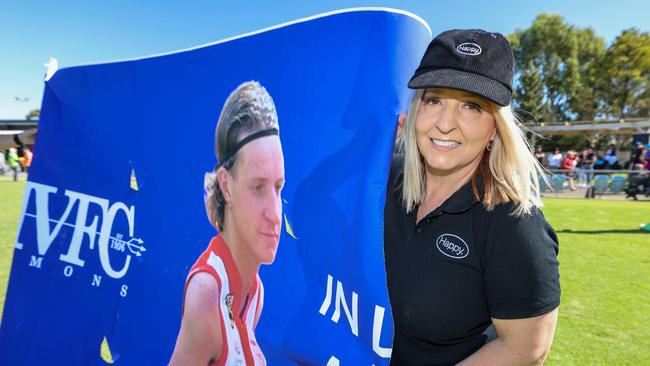
He was unconscious before he hit the ground, where he laid motionless as the game continued around him.
It’s a scene that despite her best efforts, Ms Smith will never be able to erase from her memory.
“I have to relive those moments quite often,” Ms Smith told the Sunday Mail ahead of the first anniversary of her son’s death.
“Whether I want to or not, they’re just imprinted in my brain.”
Ms Smith recalled hearing her son gasping for air after he was knocked unconscious.
“Brain death means the oxygen to your brain stops so I can’t even fathom being Antonio,” she said.
“Even though he was unconscious, the fact that he’s not getting air is so heartbreaking.”
It wasn’t until moments after the collision that Ms Smith realised her son was involved.
When she did, the ensuing minutes felt like hours.
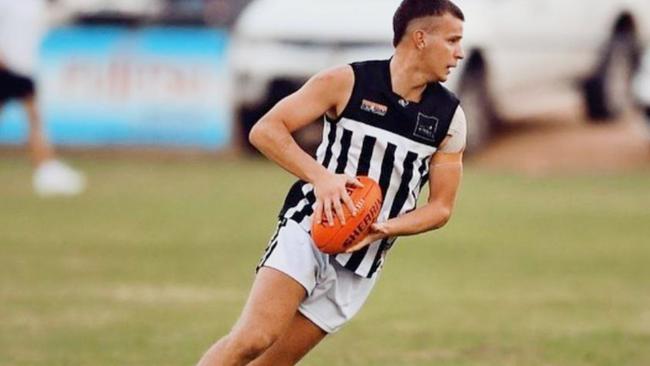
“There were moments where it was like everything stood still and seemed to take forever,” she said.
Ms Smith rushed onto the field where she watched on at failed attempts to revive her son.
“Antonio being resuscitated – it just seemed to go on and on and on, the defibrillator seemed to go for ages,” Ms Smith said.
“Everything was so surreal and silent.
“I didn’t even hear the helicopter land on the oval because I was so focused on Antonio.”
After being treated at Gumeracha Oval, Mr Lo Iacono was flown to hospital, where Ms Smith was ushered into a private room while paramedics desperately worked on her son.
Only later did she realise it was a sign of the heartbreaking news she would receive.
“I knew enough about head injuries to know that Antonio might have a serious brain injury but I certainly didn’t expect or understand that he was never going to come home,” Ms Smith said.
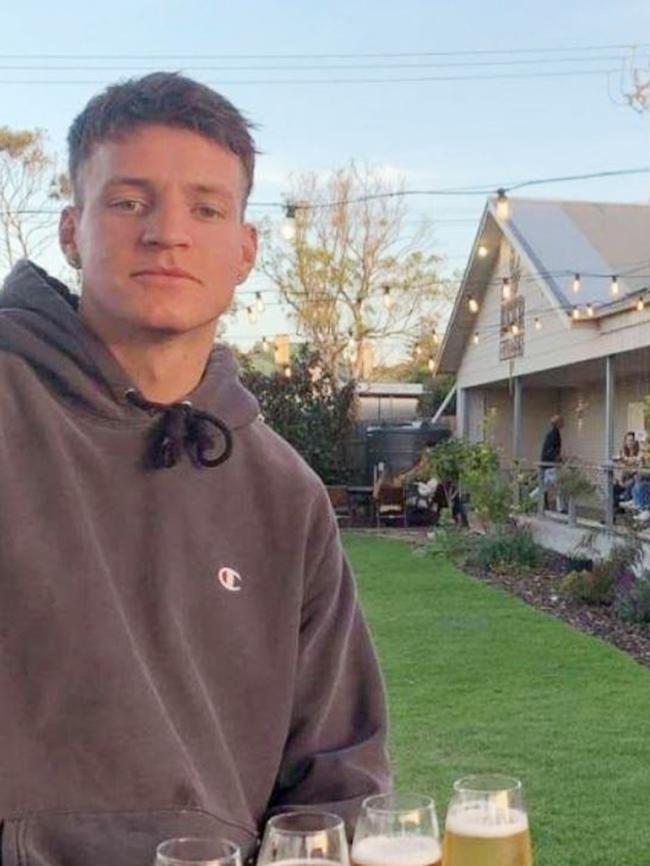
“I thought my son was going to come back.
“I thought Antonio was going to be OK.”
But from the moment of the collision, Mr Lo Iacono never regained consciousness.
“For me, I lost my son on the oval,” Ms Smith said.
The harshest reminder?
The absence of her beloved son at her dining table on Sunday nights, when he would religiously visit for dinner.
“Seeing him and smelling him and just feeling his energy when he comes to visit – it’s all that stuff,” she said.
“He wasn’t just my son, he was my mate.”
She has pushed on, but there are days where her grief physically exhausts her.
“Some days are incredibly difficult,” Ms Smith said.
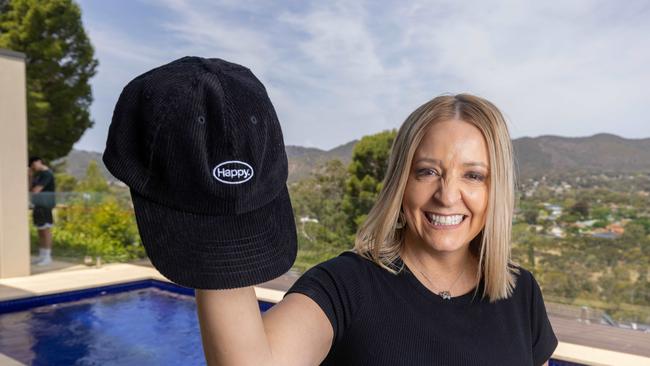
“Sometimes, like on his 21st birthday last year, obviously we couldn’t celebrate it with him but we still had a celebration.
“And then there’s Mother’s Day, Father’s Day, our birthdays.
“It’s holidays, it’s regular things that we do together as a family.
“They’re the days when you feel quite saddened by what’s happened.”
As challenging as the past 12 months have been for Ms Smith, she has dedicated much of her time to honouring her son’s memory and raising concussion awareness.
Mr Lo Iacono had suffered several concussions throughout his junior football career, with the most recent before his death coming just weeks before the fatal head knock.
In November, Ms Smith also launched Happy Lids, a hat brand that had been a long-time dream for Mr Lo Iacono, with proceeds going directly to the Concussion Legacy Foundation Australia, where Ms Smith has become a board member.
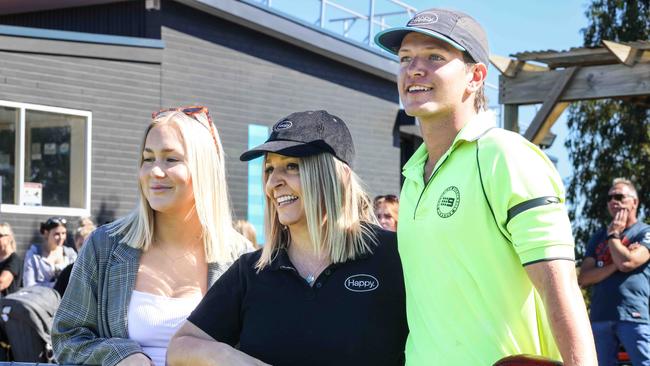
“It’s added to Antonio’s legacy but it’s also given me moments of comfort because in the past year I’ve met some amazing people that are amazing humanitarians,” Ms Smith said.
“I’m flying the flag for Antonio because people need to know my son is not another death statistic in contact sport.
“It gives me comfort … honouring his memory.
“It’s really important that this doesn’t happen to other people.”
On Saturday, Ms Smith and her youngest son Jack honoured Mr Lo Iacono before the Hope Valley Football Club’s B Grade match.
The team, made up of several of Mr Lo Iacono’s closest mates, ran through a commemorative banner on the oval where the 20-year-old played much of his junior football and where friends and family gathered to celebrate his life last May.
And difficult as that walk down the hospital corridor almost a year ago was for Ms Smith, the “bitter sweet” moment marked the start of her son’s legacy.
His organ donation that day would go on to save six lives, while his brain was gifted to the Australian Sports Brain Bank to help research the impacts of contact sports on young athletes.
“It was bitter sweet,” Ms Smith said.
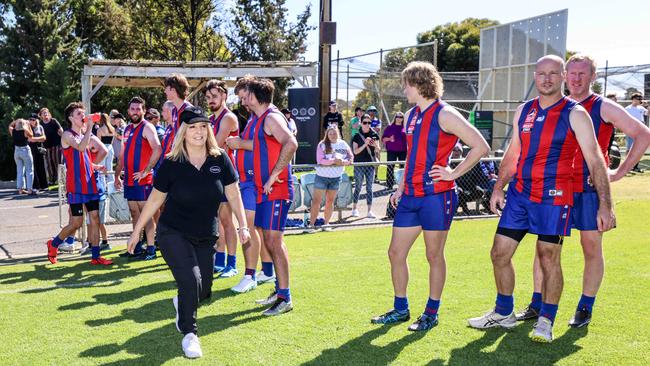
“Bitter in the last time I get to hold his hand but it was sweet because he went on to save six lives.”
No matter how much time passes, Ms Smith will always remember her son as the larrikin with the beautiful energy and a laugh that lit up a room.
“He was just larger than life,” Ms Smith said.
“He was just a big, beautiful ball of energy.
“He was everyone’s best friend.”




